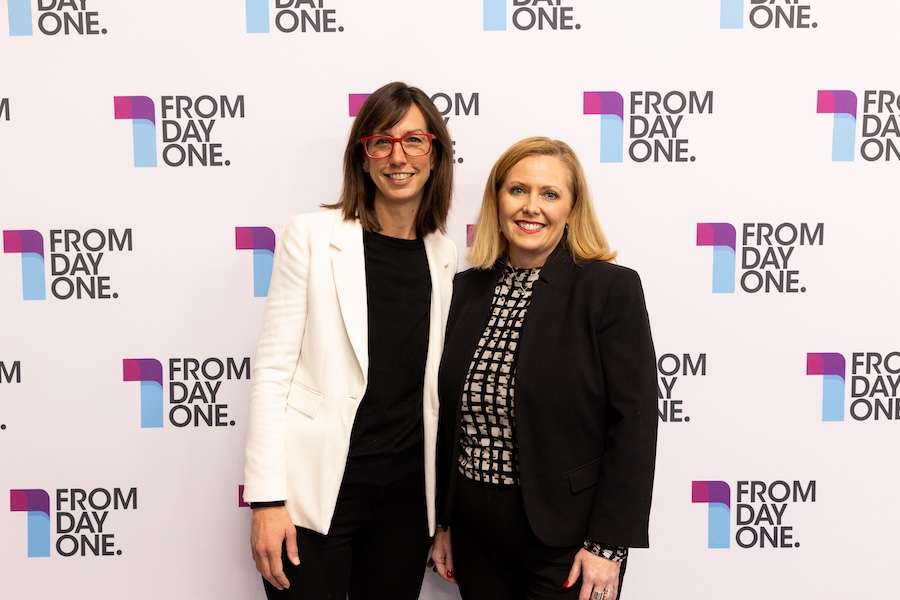Responding to Chronic Labor Shortages: How a Healthcare Giant Takes Innovative Approaches


Labor shortages persist at historic levels in 2024, with 1.7 million workers missing compared to February 2020. This was the focus of a fireside chat featuring Heather Brace, the chief people officer at Intermountain Healthcare, at From Day One’s Salt Lake City conference. Interviewed by Lauren Gustus, executive editor of the Salt Lake Tribune, Brace discussed how the organization is responding to these chronic labor shortages.
At the height of the pandemic, Brace says Intermountain had 6,500 job openings. As the largest private employer in Utah, this figure was overwhelming. Keeping hospitals and doctors’ offices fully staffed with locals became near impossible.
“We saw an explosion in all types of travel agency workers, particularly in nursing and other clinical jobs,” she said. These travel nurses cost Intermountain two to two-and-a-half times the standard nurses’ salary, Brace says.
“They took advantage of things the industry hadn’t responded to appropriately,” she said. “When I look back, before the pandemic, I can see our nurses wanted a different type of wage structure. They wanted flexibility. They wanted autonomy. We had the opportunity to respond to that before the pandemic, but we’re a very traditional thinking industry. The mindset was ‘well, this is always worked for patients.’”
But this pivot was overwhelming enough to force change.
“We have doubled down on the remote strategy,” Brace said. “With the understanding that clinical people can’t often be remote, we acknowledge that one size fits all doesn’t work when it comes to remote work models.”

With mobility came a need to rethink compensation.“We’ve increased wages almost 40% year over year,” she said. “With remote work sticking around, especially at Intermountain, people can move anywhere in the country and provide services to any organization. This means we’re now competing with California, Colorado, and all the surrounding states when recruiting. Utah has not been known for the best compensation in the nation, and now that’s being challenged.”
The biggest impact to hiring, though, has been what Brace calls a “redesign of work.” “We’ve put a greater emphasis on mental health, ‘how do we take care of our people in the same way we’re taking care of our communities?” she said.
Alongside mobility and higher wage, the answer was in implementing skill-based learning, recruiting diverse team members, and creating a sense of belonging.
“We’ve developed a partnership with refugee organizations here in the valley, in addition to community and technical colleges,” Brace said. “We don’t have to spend operational dollars to train people to do work inside of our organization. Instead, we put them to work, and then it changes the trajectory of their life. We have so many educational programs that we can then use to continue to help promote someone.”
Bringing folks from non-traditional pathways into healthcare has also boosted Intermountain’s diversity efforts. Amidst heated legislative battles over DEI programs in Utah, Brace says Intermountain will continue to hire people who represent the communities they serve.
“It’s not only good for our organization, but it’s good for our patients,” she said. “It also creates a sense of belonging. Our intent is to nurture an inclusive environment where you can speak up, dress appropriately to your culture, and be able to thrive and grow. We’ve found a lot of success in that.”
All the above has served to fill nearly 2,000 of the pandemic job openings. Despite the ever-present hurdles in the world of recruiting, Brace says she has a lot of hope for the future.
“My teenage boys really believe that the world is their oyster,” she said. “I think we’ve got to take that on as human resource professionals; if we lean into it, it’ll be different, but it’ll all work out.”
Jacqueline Mumford is a writer and Master of Accounting graduate from the University of Utah. When she’s not in Excel or writing an article, she loves to run, play Candy Crush, and read novels.
The From Day One Newsletter is a monthly roundup of articles, features, and editorials on innovative ways for companies to forge stronger relationships with their employees, customers, and communities.